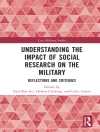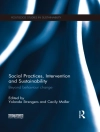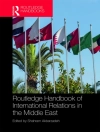′This book is jam-packed with a wide range of material related to qualitative research…. [T]his is a quality text and has much to offer the reader, especially the novice researcher′ – Nurse Researcher
`This comprehensive collection of almost 40 chapters – each written by a leading expert in the field – is the essential reference for anyone undertaking or studying qualitative research. It covers a diversity of methods and a variety of perspectives and is a very practical and informative guide for newcomers and experienced researchers alike′ – John Scott, University of Essex
`The best ways in which to understand the issues and processes informing qualitative research is to learn from the accounts of its leading practitioners. Here they come together in what is a distinctive and wide-ranging collection that will appeal to postgraduates and social researchers in general′ – Tim May, University of Salford
`This excellent guide engages in a dialogue with a wide range of expert qualitative researchers, each of whom considers their own practice in an illuminating and challenging way. Overall, the book constitutes an authoritative survey of current methods of qualitative research data collection and analysis′ – Nigel Gilbert, University of Surrey
This concise paperback edition of the best selling handbook, Qualitative Research Practice , is particularly aimed at the student reader. The chapters are written by leading, internationally distinguished qualitative researchers who recount and reflect on their own research experiences as well as others, past and present, from whom they have learned. It demonstrates the benefits of using particular methods from the viewpoint of real-life experience. This is also a good philosophy for students to adopt in planing research work: to begin from a practical conception of the research process and to treat a book like this as an opportunity to learn a valuable craft.
From the outside, good research seems to be produced through practitioners learning and following standard theoretical, empirical and procedural formats. But from the inside we learn that qualitative research (like other forms of scientific endeavour) is also a biographical engagement, rendering its scholarly and practical contributions in its own terms. Standards take on practical meaning as the distinct activities of qualitative research resonate throughout the enterprise, complicating its accountability to itself and to others. In an authoritative yet accessible manner, Qualitative Research Practice reveals the special features of this engagement, teaching us that qualitative research is as much a craft and practice as it is a way of knowing.
Presenting a comprehensive examination of contemporary and traditional varieties of qualitative research practice, Qualitative Research Practice will be an invaluable resource for advanced students and researchers in any discipline. It is an essential and definitive guide to the major forms of qualitative methods in use today, written by leaders in the relevant fields of research practice.
Tabela de Conteúdo
Introduction – Clive Seale et al
Inside Qualitative Research
PART ONE: ENCOUNTERING METHOD
Interviews – Tim Rapley
Oral History – Joanna Bornat
Biographical Research – Gabriele Rosenthal
Focus Groups – Phil Macnaghten and Greg Myers
Grounded Theory – Ian Dey
PART TWO: ANALYTIC FRAMEWORKS
Narrative Research – Molly Andrews et al
Feminist Approaches – Celia Kitzinger
The Foucaultian Framework – Gavin Kendall and Gary Wickham
Ethnomethodology – Paul ten Have
Conversation Analysis – Anssi Peräkylä
Discourse Analytic Practice – Alexa Hepburn and Jonathan Potter
Critical Discourse Analysis – Ruth Wodak
PART THREE: FIELD RELATIONS
Ethnography and Participant Observation – Sara Delamont
Ethical Issues – Anne Ryen
Working in Hostile Environments – Nigel Fielding
Politics, Research and Understanding – Les Back
PART FOUR: CONTEXT AND METHOD
Context – James A Holstein and Jaber F Gubrium
Working It Up, Down and Across
Working Qualitatively and Quantitatively – Julia Brannen
Secondary Analysis of Archived Data – Louise Corti and Paul Thompson
Reanalysis of Previously Collected Material – Malin Åkerström, Katarina Jacobsson and David Wästerfors
The Internet as Research Context – Annette N Markham
Documents – Lindsay Prior
Visual Methods – Sarah Pink
PART FIVE: QUALITY AND CREDIBILITY
Quality in Qualitative Research – Clive Seale
Five Misunderstandings about Case-Study Research – Bent Flyvbjerg
Sampling, Representatives and Generalizability – Giampietro Gobo
Working with ′Key Incidents′ – Robert M Emerson
Computer-Assisted Qualitative Data Analysis – Udo Kelle
PART SIX: AUDIENCES AND APPLICATIONS AND THE INTERNATIONAL CONTEXT
Qualitative Evaluation Research – Moira J Kelly
Action Research – Donna Ladkin
Publishing Qualitative Manuscripts – Donileen R Loseke and Spencer E Cahill
Lessons Learned
The Globalization of Qualitative Research – Pertti Alasuutari
Sobre o autor
Giampietro Gobo is Professor of Methodology of Social Research and Sociology of Science at the University of Milan (Italy). He was one of the founders of the ‘Qualitative Methods’ Research Network of the European Sociological Association. His interests concern scientific controversies on health issues and workplace studies. He is currently undertaking projects on immunization and COVID-19 policies, and ethnographic experiments in the area of cooperation in small teamwork. His books include Doing Ethnography (Sage, 2008), Qualitative Research Practice (co-edited with C. Seale, J. F. Gubrium and D. Silverman, Sage, 2004) and Constructing Survey Data: An Interactional Approach (with S. Mauceri, Sage, 2014).












